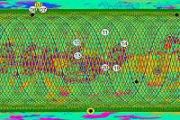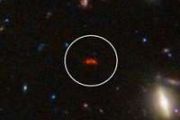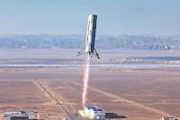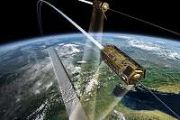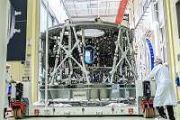
Copernical Team
Bioprinting tech could address critical health challenges in space
 New research by The University of Manchester will enhance the power of bioprinting technology, opening doors to transform advances in medicine and addressing critical health challenges faced by astronauts during space missions.
Bioprinting involves using specialised 3D printers to print living cells creating new skin, bone, tissue or organs for transplantation.
The technique has the
New research by The University of Manchester will enhance the power of bioprinting technology, opening doors to transform advances in medicine and addressing critical health challenges faced by astronauts during space missions.
Bioprinting involves using specialised 3D printers to print living cells creating new skin, bone, tissue or organs for transplantation.
The technique has the How being in space impairs astronauts' immune system
 A new study led by researchers at Karolinska Institutet in Sweden has examined how T cells of the immune system are affected by weightlessness. The results, which are published in the journal Science Advances, could explain why astronauts' T cells become less active and less effective at fighting infection.
The next steps in the exploration of space are human missions to the moon and to Ma
A new study led by researchers at Karolinska Institutet in Sweden has examined how T cells of the immune system are affected by weightlessness. The results, which are published in the journal Science Advances, could explain why astronauts' T cells become less active and less effective at fighting infection.
The next steps in the exploration of space are human missions to the moon and to Ma First geosynchronous orbit SAR satellite enters working orbit
 China's recently-launched L-SAR4 01 satellite, the world's first geosynchronous (high Earth orbit) synthetic aperture radar (SAR) satellite stepping into the project implementation stage, has entered its working orbit with its SAR antenna successfully deployed, according to the China National Space Administration (CNSA).
The L-SAR4 01 satellite, sent into space on Aug. 13, has entered its
China's recently-launched L-SAR4 01 satellite, the world's first geosynchronous (high Earth orbit) synthetic aperture radar (SAR) satellite stepping into the project implementation stage, has entered its working orbit with its SAR antenna successfully deployed, according to the China National Space Administration (CNSA).
The L-SAR4 01 satellite, sent into space on Aug. 13, has entered its Mysterious Neptune dark spot detected from Earth for the first time
 Using ESO's Very Large Telescope (VLT), astronomers have observed a large dark spot in Neptune's atmosphere, with an unexpected smaller bright spot adjacent to it. This is the first time a dark spot on the planet has ever been observed with a telescope on Earth. These occasional features in the blue background of Neptune's atmosphere are a mystery to astronomers, and the new results provide furt
Using ESO's Very Large Telescope (VLT), astronomers have observed a large dark spot in Neptune's atmosphere, with an unexpected smaller bright spot adjacent to it. This is the first time a dark spot on the planet has ever been observed with a telescope on Earth. These occasional features in the blue background of Neptune's atmosphere are a mystery to astronomers, and the new results provide furt NASA, Partners study ancient life in Australia to inform Mars search
 NASA is working with its international partners to study the ancient Earth as it relates to Mars.
In June 2023, NASA's Mars Exploration Program leaders joined their counterparts from the Australian Space Agency, ESA (European Space Agency), and the Australian Commonwealth Scientific and Industrial Research Organization (CSIRO) on a field expedition to visit some of the oldest convincing ev
NASA is working with its international partners to study the ancient Earth as it relates to Mars.
In June 2023, NASA's Mars Exploration Program leaders joined their counterparts from the Australian Space Agency, ESA (European Space Agency), and the Australian Commonwealth Scientific and Industrial Research Organization (CSIRO) on a field expedition to visit some of the oldest convincing ev India and the global race to the Moon
 India made history as the first country to land near the south pole of the Moon with its Chandrayaan-3 lander on Aug. 23, 2023. This also makes it the first country to land on the Moon since China in 2020.
India is one of several countries - including the U.S. with its Artemis program - endeavoring to land on the Moon. The south pole of the Moon is of particular interest, as its surface, m
India made history as the first country to land near the south pole of the Moon with its Chandrayaan-3 lander on Aug. 23, 2023. This also makes it the first country to land on the Moon since China in 2020.
India is one of several countries - including the U.S. with its Artemis program - endeavoring to land on the Moon. The south pole of the Moon is of particular interest, as its surface, m Hera asteroid spacecraft assembled
 Hera is complete. ESA's asteroid mission for planetary defence was built and prepared in two halves, but now, through a painstaking operation, they have been mated together to make a single spacecraft, ready for full-scale testing of its readiness for space.
The mating took place at OHB Bremen in Germany, with Hera's Core Module raised more than 3 m above its Propulsion Module then gradual
Hera is complete. ESA's asteroid mission for planetary defence was built and prepared in two halves, but now, through a painstaking operation, they have been mated together to make a single spacecraft, ready for full-scale testing of its readiness for space.
The mating took place at OHB Bremen in Germany, with Hera's Core Module raised more than 3 m above its Propulsion Module then gradual India's Moon mission a model for aspiring space powers: PM Modi
 India's budget Moon landing is a model for other countries aspiring to develop their own space programmes, Prime Minister Narendra Modi said Saturday while praising the scientists behind the successful mission.
Chandrayaan-3 - "Mooncraft" in Sanskrit - touched down on the lunar surface on Wednesday, making India the first nation to land an unmanned craft near the largely unexplored lunar s
India's budget Moon landing is a model for other countries aspiring to develop their own space programmes, Prime Minister Narendra Modi said Saturday while praising the scientists behind the successful mission.
Chandrayaan-3 - "Mooncraft" in Sanskrit - touched down on the lunar surface on Wednesday, making India the first nation to land an unmanned craft near the largely unexplored lunar s The fight over a 'dangerous' ideology shaping AI debate
 Silicon Valley's favourite philosophy, longtermism, has helped to frame the debate on artificial intelligence around the idea of human extinction.
But increasingly vocal critics are warning that the philosophy is dangerous, and the obsession with extinction distracts from real problems associated with AI like data theft and biased algorithms.
Author Emile Torres, a former longtermist tur
Silicon Valley's favourite philosophy, longtermism, has helped to frame the debate on artificial intelligence around the idea of human extinction.
But increasingly vocal critics are warning that the philosophy is dangerous, and the obsession with extinction distracts from real problems associated with AI like data theft and biased algorithms.
Author Emile Torres, a former longtermist tur A multinational crew blasts off from Florida, heading for the International Space Station
 Four astronauts from four different countries and agencies soared into orbit early Friday morning from NASA's Kennedy Space Center (KSC) in Florida aboard a SpaceX Dragon spacecraft named Endurance atop a Falcon 9 rocket, kicking off a roughly 29-hour journey to the orbiting lab.
The four-person crew took off from the historic Launch Pad 39A (LC-39A) at KSC at 3:27 a.m. EDT (0727 UTC) Satu
Four astronauts from four different countries and agencies soared into orbit early Friday morning from NASA's Kennedy Space Center (KSC) in Florida aboard a SpaceX Dragon spacecraft named Endurance atop a Falcon 9 rocket, kicking off a roughly 29-hour journey to the orbiting lab.
The four-person crew took off from the historic Launch Pad 39A (LC-39A) at KSC at 3:27 a.m. EDT (0727 UTC) Satu 















